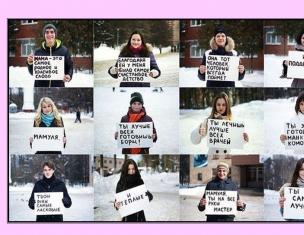“Pensions on state pension provision, including social ones, will be increased by 4.1% for working and non-working pensioners. As a result, the average annual social pension will grow to 9,045 rubles,” the pension fund said.
Note that the amount of 9,045 rubles is equivalent to 103.7% of the pensioner's subsistence minimum.
The pension fund also noted that the average social pension for children with disabilities and disabled people from childhood of the first group next year will be 13,699 rubles.
Recall, earlier it became known that the cost of social benefits in Russia in 2018 will grow to 981 billion rubles.
According to Topilin, the indexation of social pensions from April 1, 2018 is planned in the draft budget of the Russian Federation at the level of 4.1%. "Social pensions, nothing changes there [in the indexation mechanism]," the minister said, explaining that the indexation will be 4.1%.
At the same time, according to him, indexation for working pensioners next year is not provided. "No, we have not changed the conditions, the moratorium has been maintained," Topilin added.
Earlier, the press service of the Pension Fund of Russia (PFR) reported that the average increase in old-age insurance pensions in 2018 could be about 400 rubles. According to the Pension Fund of the Russian Federation, in 2017 the average old-age insurance pension amounted to 13,657 rubles, and in 2018 it could rise to 14,045 rubles.
Indexation of pensions in 2018: who will receive what increase?
Pensions will increase three times, but once for different categories of pensioners: in January, April and August. For the most part, everything is as usual, but in 2018, some changes appeared in the rules for indexing pensions.January. Non-working pensioners
The upgrade for this category will take place on January 1st. The government decided to move the indexation deadlines a month ahead - before that, the increase was accrued from February 1. According to the law, pensions are growing at the level of last year's increase in prices. Therefore, the FIU usually waited for Rosstat to finally calculate inflation. And only after that they began to distribute pensions. In 2018, the increase will be faster.
It was decided to index pensions by 3.7% from January 1, 2018. Do it earlier in order to ensure a more significant increase in real pensions next year, - recently said the Minister of Labor and Social Protection Maxim Topilin.
The government initially provided for an increase of about 4% next year. This was the forecast for the current inflation. But the reality turned out to be much more positive. Now, according to the latest data from Rosstat, over the past year (since last September), prices have increased by only 3%. Therefore, the Cabinet of Ministers decided not to wait for official figures and immediately put an increase of 3.7% into the budget. In any case, it will be higher than real inflation.
Recall that this year the average old-age insurance pension is 13,657 rubles. Taking into account indexation, in a year it will grow to 14,045 rubles. That is, the average increase is about 400 rubles.
April. Social pensioners
More than 4 million people receive a social pension in Russia. As a rule, these are the disabled, war veterans, children left without a breadwinner in the family and other beneficiaries, as well as those who have not earned the necessary experience. Now the average social pension is 8,742 rubles. From April 1, 2018, it will grow by 4.1%.
For comparison, the average annual social pension for children with disabilities and people with disabilities since childhood of group I is 13,241 rubles. But there are those who receive only 5-6 thousand rubles. As explained in the Pension Fund of Russia, all pensioners (both social and insurance), whose income is below the subsistence level of a pensioner (PMP) in the region of residence, are entitled to social supplements. They increase the amount of the benefit to the level of the PHC.
August. Working pensioners
In total, there are 43 million pensioners in Russia. Of these, about a third (14 million people) are employed. The indexation of pensions does not apply to them. A few years ago (after another reform), it was canceled. Working pensioners were left with only an increase due to the increase in seniority.
We have not changed the conditions, the moratorium has been preserved,” Maxim Topilin explained recently.
Companies continue to pay insurance premiums for working pensioners. According to the new rules, they are transformed into pension points. One point in 2017 is estimated at 78.58 rubles, and in the next it will be 81.49 rubles. And the higher the salary, the more points you can earn. But there is a ceiling: the maximum increase in 2018 can be up to three pension points, that is, about 245 rubles, the Pension Fund specified.
Other incentives have appeared for working pensioners - for example, you can postpone your well-deserved rest voluntarily (or suspend receiving a pension) and then get a multiplier (the formula is on the PFR website). But so far very few have taken advantage of it.
Since January 1, 2018, the majority of Moscow pensioners have become richer by 3 thousand rubles - this is the amount by which the increase in pensions took place in accordance with Decree of the Government of Moscow dated October 31, 2017 N 805-PP. At the same time, there are no new increases for 2019 - the city social standard has not changed. Recall that after the increase, the minimum pension in Moscow in 2018-2019 for non-working pensioners increased to 17,500 rubles. The minimum pension is guaranteed to residents who have completed their seniority and receive an insurance pension for old age or disability, and who have been registered in Moscow for more than 10 years.
Let us tell you in more detail what changes took place in the pension legislation of the capital in 2019, who is entitled to a minimum pension of 17,500 rubles, who can only count on an increase in payment to the subsistence level in Moscow, who will receive allowances and raises. Attention: From September 1, 2019, the minimum pension in Moscow will increase by 2,000 rubles, read more.
Retirement in 2018 and 2019 - it was and has become
What is the minimum pension in Moscow waiting for the townspeople, was discussed by the Moscow government, headed by Mayor Sergei Sobyanin, since the fall of 2017. As a result, the social minimum of the city material standard of non-working pensioners in Moscow was increased from January 1, 2018 and amounted to 17,500 rubles. In 2017, the minimum pension in the capital was 14,500 rubles, that is, the increase was more than 20%. However, the expected increase in the city social standard did not happen in 2019 - it remained at the same level as last year.
The Moscow authorities were able to find money to support a vulnerable group of the population thanks to the economic prosperity of the city and the increase in the incomes of working citizens. The increased pension for Muscovites is a reflection of the economic growth that the Russian capital is experiencing. Sobyanin announced that there would be an increase in pensions in Moscow in 2018 at a meeting of the Presidium of the Government of Moscow in the fall of 2017. The economic rationale for the introduction of appropriate measures of urban support for pensioners was also given there.
Officially, the amount of social payments and additional payments to pensions is fixed:
- Decree of the Government of Moscow No. 805-PP dated October 31, 2017 "On establishing the amount of certain social and other payments for 2018".
- Decree of the Government of Moscow dated December 11, 2018 No. 1525-pp "On establishing the amount of certain social and other payments for 2019".
Who is entitled to an increase to the city standard
The increase in the minimum wage to 17,500 rubles will affect the category of pensioners who, at the time of registration of the allowance, have had a permanent residence permit in the capital for more than 10 years (this includes living in territories annexed to Moscow).
Based on clause 5(1) of Decree of the Government of the Capital No. 1268-PP, these citizens are entitled to increase their pension income to the level of the city social standard if their material income is less than the minimum pension in Moscow.
Who will be raised to the living wage?
The minimum pension in Moscow in 2019 for those living in the capital for less than 10 years (this applies to both those with permanent registration in the capital and those with temporary registration) will not reach the Moscow minimum of 17,500. Based on clause 7 of Decree of the Moscow Government No. 1268-PP, these citizens can count on an additional payment up to the subsistence level of a capital pensioner if their pensions are less than the established amount.
From January 1, 2019, the cost of living for a pensioner in the capital is 12,115 rubles. It was introduced by Law No. 22 of October 31, 2018 "On establishing the subsistence minimum for a pensioner in the city of Moscow in order to determine the regional social supplement to a pension for 2019." Compared to 2018, this indicator increased by 299 rubles. Previously, the pension PM was 11,420 rubles. in accordance with the Decree of the Government of Moscow No. 952-PP dated 05.12.2017
Who will not be raised to the minimum wage?
The following cannot apply for an additional payment up to the minimum amount of a pension in Moscow:
- persons residing in the capital and not registered;
- receiving a pension outside of Moscow;
- Russians temporarily (more than 6 months) or permanently residing outside the country;
- pensioners using social services of social service organizations;
- undergoing compulsory psychiatric treatment or in correctional facilities.
The minimum pension in Moscow at the beginning of 2019 for working pensioners will not change, except for certain categories that are entitled to a regional compensatory allowance in accordance with Decree of the Government of Moscow No. 1005-PP of November 27, 2007, as amended on December 29, 2018. To them include disabled people and participants in the Second World War, employees of federal and municipal organizations of health care, education, etc.
Working pensioners should expect an increase in payments from August 2019, the amount of the increase is not yet known.

Changes for 2019
- This year, from January 1, and not from February 1 as usual, insurance pensions for non-working pensioners were indexed by 7.05%.
- From 01/01/2019, the cost of one pension coefficient, according to the PFR, is 87 rubles. 24 kopecks, and the size of the fixed payment to the old-age pension (not including the corresponding increases) - 5,334.19 rubles.
- From April 1, 2019, social pensions and state pensions will increase by 2% in the Russian Federation, including in Moscow.
Increase in other social payments to pensioners
In 2018, additional monthly payments were regulated by Decree of the Government of Moscow No. 805-PP dated October 31, 2017. A new act was adopted for 2019 - Decree of the Government of Moscow dated December 11, 2018 No. 1525-pp “On establishing the amount of certain social and other payments ... ".
It, in particular, provides that the majority of social payments will remain at the level of 2018:
- persons subjected to repression and rehabilitation - 2,000 rubles;
- rear workers - 1,500 rubles;
- veterans of labor and the Armed Forces - 1000 rubles;
- disabled people and participants of the Great Patriotic War for consumer products, who did not work out the length of service, were injured in childhood, honorary donors of the USSR - 2,000 rubles each;
- participants who defended the capital - 8,000 rubles;
- widowed Heroes of the USSR or the Russian Federation, Socialist Labor, full holders of the Order of Glory and Labor Glory (not remarried); the parent of the deceased (deceased) Hero of the USSR or the Russian Federation; old-age or disability pensioners who have merit in sports - 15,000 rubles;
- Heroes of the USSR or the Russian Federation, Heroes of Socialist Labor or Labor of the Russian Federation, holders of the Order of Glory or Labor Glory - 25,000 rubles;
- persons of retirement age who are honorary citizens of Moscow - 50,000 rubles;
- pensioners with other honorary titles (people's, honored artist) - 30,000 rubles.
The innovations of the resolution for 2019 were:
- Additional social benefits of 1,000 rubles. per month to veterans of labor and military service (women who have reached 55 years old, men - 60).
- Monthly compensation for local telephone subscribers - 250 rubles.
- A number of one-time social payments have been established for 2019 - financial assistance in connection with the 74th anniversary of the victory, the 30th anniversary of the withdrawal of troops from Afghanistan, to citizens affected by radiation. The amount of such financial assistance will be determined by separate acts of the city authorities.
You can download the full text of Decree No. 1525-pp here. To obtain information and apply for an allowance, a pensioner must apply to the local PFR department with an application for an additional payment and a package of documents confirming this right.
Labor pensions in Russia in 2018 for non-working pensioners will be indexed above inflation one month earlier- that is, not from February 1, as is traditionally done and established by law "About insurance pensions", a since January 1, 2018. This will be done in order to ensure next year not only a nominal increase in pensions, as has been the case for the past few years, but also their growth in real terms(that is, above the inflation rate). This increase will affect recipients of all types of insurance pensions - old age, disability and survivors, with the exception of.
In order to index pensions in 2018, a draft law was developed in a special format, which was adopted and signed by V.V. Putin on December 28, 2017.
This was announced on September 18, 2017 by the Minister of Labor and Social Protection of the Russian Federation Maxim Topilin based on the results of the Government meeting, which discussed the forecast of Russia's socio-economic development for the next 3 years, the draft federal budget and state extra-budgetary funds.
By what percentage will pensions be increased in 2018?
Thus, from January 1, 2018, based on the results of the indexation of the insurance pension by 3.7%, the size of one pension coefficient will increase from the current 78.58 to 81.49 rubles, and the base amount of the fixed payment will increase from 4805.11 to 4982.90 rubles(see table below).
In Art. 8 of the text of the introduced draft law on the budget of the Pension Fund, it was indicated that, in accordance with the rule established by part 22 of Art. 18 law "About insurance pensions", from April 1, 2018, the size of one pension coefficient will be RUB 81.96, due to which the total increase in the cost of IPC in 2018 will be (81.96 / 78.58 - 1) = 4,3% . However, in the process of considering the draft law by the State Duma, this measure expelled.
Will there be indexation for working pensioners in 2018?
Indexation of pensions in 2018 in Russia will be carried out only for those who are already retired. There are no plans to reopen in 2018.
As the head of the Ministry of Finance of the Russian Federation noted Anton Siluanov, it's connected with rising real wages in the country, which will continue in 2018 and which will exceed inflation in the country. In this regard, according to the Ministry of Finance, there are more opportunities to increase their income in 2018 than the unemployed. At the same time, it was once again noted that all missed indexations during the period of continuation of labor activity by pensioners will be carried out as soon as they stop working. Until then, they will only be entitled to, held annually from August 1 in an amount not exceeding 3 pension points, according to the paid ones.
Thus, while in 2018 for working pensioners, it is envisaged to maintain, which was in effect in 2016 and 2017. However, back in the spring, Prime Minister Dmitry Medvedev proposed to return to the discussion of this issue. In this regard, on September 18, Deputy Prime Minister for Social Affairs Olga Golodets proposed to hold another separate meeting on this issue, taking into account the interests of all interested parties.
Increase in social pension in 2018
Disabled citizens in accordance with Art. 25 federal law "On State Pension Provision in the Russian Federation" are indexed in proportion to the increase in the subsistence minimum for pensioners over the past year. The indexation coefficient is determined in March immediately before it is held and is approved by a separate Government Decree.
In this regard, now the percentage of increase in social pensions can be called very tentatively. As the head of the Ministry of Labor said on September 18 Maxim Topilin, their indexation from April 1, 2018 is planned tentatively at 4.1%(forecast).
In the light of the negative trends in the Russian economy that have been dragging on for several years, citizens are in no hurry to increase their consumer baskets - it is obvious that the crisis has hit the wallets of Russians with tangible force. It is known that the state in 2018 will again have gaps - and, in this regard, a number of analysts expressed their disappointing forecasts regarding the increase in standards of social payments. This topic worries Russian pensioners the most. What will be the pension in 2018 and are there any prerequisites for increasing the minimum benefit? Let's consider the main theses.
How do they promise to increase the minimum pension from January 1, 2018?
“Minimum pension” is an absolutely conditional term in the legislation of the Russian Federation, and implies the amount that is paid monthly to people whose length of service and age meets pension standards, including those who do not receive other types of pension benefits.
The amount of the subsistence minimum is calculated from the parameters for the current year, the level of price growth for, as well as other indicators of the economic state of the state. In each region of the Russian Federation, the living wage standard has different values, and if the minimum pension does not reach its level, the shortfall is subsidized by funds from the regional treasury.
It is necessary to differentiate the question of the minimum in 2018 by category of accrual for citizens:
The insurance pension (by age) implies a well-deserved rest for women after 55 years and for men - after 60 years, if they have at least 7 years (until 2024 this standard will increase to 15 years). 8703 rubles - this is the minimum that beneficiaries of the insurance pension can count on in 2018. From January 1, the new year, Moscow pensioners are promised to pay twice as much - 17,500 rubles.
Social pensions are benefits paid regularly to those citizens who do not receive monthly insurance payments, but need state support for certain reasons (in case of disability, loss of a breadwinner, old age in the absence). In 2018, the government promises to index this type of benefits by 3.7%. And since April of the new year, the size of the social pension is expected at the level of 8742 rubles.
The minimum insurance pension will also be indexed by 3.7%, and this will be done not in February, as a rule, but from January 1. But for working pensioners, their allowance will remain unchanged until August 2018 - from this month, the recalculation of pensions will take place taking into account the increase in the cost of their labor points.
The size of the minimum Russian pension in 2018 will be calculated according to the formula:
Fixed amount + insurance premium,
where the last value is sum of individual points * cost. Instead of 78.58 rubles of the cost of a point in 2017, it is planned to fix this indicator at the level of 81.49 rubles.
How does the minimum living wage for a pensioner differ across regions of Russia?
The first wave of a general increase is planned in January, but not all pensioners will receive the same, even if they have the same achievements in terms of seniority. In addition, local budgets from the new year may introduce additional charges to their residents. How will the size of the minimum pensions differ in the Russian regions?
As already noted, it is the residents of Moscow who can claim one of the highest pensions in the country - their size is set at 17,500 thousand.
The highest level of the minimum pension benefit in the Central District is 9.5-9.6 thousand rubles. recorded in the Voronezh, Kostroma, Smolensk regions, and the lowest - in the Kursk and Bryansk regions, here the minimum pension does not exceed 7.5 thousand rubles.
The indicators will be higher in the North-Western District - for example, in the Murmansk and Arkhangelsk regions, the minimum pension will be more than 12.5 thousand rubles, and in the Nenets Autonomous Okrug - more than 18 thousand rubles. At the same time, in St. Petersburg, the Leningrad and Novgorod regions - one of the lowest minimum wages in the region - about 8.8 thousand rubles.
In the Southern District, pensioners of the Volgograd and Rostov regions can count on the largest “minimum wage”, here the amount of benefits is fixed at 9.4 thousand rubles. At the same time, residents of Adygea and Kalmykia receive the smallest amounts in the region - less than 8.7 thousand rubles.
About 9-9.3 thousand rubles - this is the "minimal wage" for residents of the Volga Federal District in Udmurtia, Tatarstan, Kirov region. The Saratov and Orenburg regions lag behind them by an order of magnitude - here the minimum pension is 7.7 thousand rubles.
Sufficiently high rates of minimum pensions are fixed in the Urals district. In the Yamalo-Nenets and Khanty-Mansi Autonomous Okrugs, pensioners live on 12-14 thousand rubles, while in the Tyumen and Chelyabinsk regions, the pension will be an order of magnitude lower - about 9.3 thousand rubles.
The highest minimum pension in the Siberian District is 9.7 thousand rubles. recorded in the Republic of Buryatia, Trans-Baikal Territory, Novosibirsk Region. But in Kemerovo, the lowest pension indicators barely reach 8.8 thousand rubles.
The highest levels of pensions are intended for residents of the Far Eastern Federal District. In Yakutia, Kamchatka, Chukotka, pensioners receive benefits in the range of 17-21 thousand rubles. At the same time, the lowest rates are observed in the Amur Region, Primorsky Territory - about 9.6 thousand rubles.
But in the North Caucasus Federal District, pensioners receive benefits - the smallest in the country. In Karachay-Cherkessia, North Ossetia, Ingushetia, Stavropol Territory, these payments are in the range of 7.6-8 thousand rubles.
Minimum pension in 2018 by regions of Russia: table
| No. pp | Region | rubles |
|---|---|---|
| Central Federal District | ||
| 1 | Belgorod region | 8 836 |
| 2 | Bryansk region | 7 327 |
| 3 | Vladimir region | 9 233 |
| 4 | Voronezh region | 9 567 |
| 5 | Ivanovo region | 8 194 |
| 6 | Kaluga region | 9 338 |
| 7 | Kostroma region | 9 629 |
| 8 | Kursk region | 7 044 |
| 9 | Lipetsk region | 9 479 |
| 10 | Moscow region | 9 864 |
| 11 | Oryol Region | 8 597 |
| 12 | Ryazan Oblast | 7 998 |
| 13 | Smolensk region | 9 516 |
| 14 | Tambov Region | 8 231 |
| 15 | Tver region | 8 726 |
| 16 | Tula region | 9 354 |
| 17 | Yaroslavskaya oblast | 8 930 |
| 18 | Moscow | 17 500 |
| Northwestern Federal District | ||
| 19 | Republic of Karelia | 9 703 |
| 20 | Komi Republic | 10 556 |
| 21 | Arkhangelsk region | 12 315 |
| 22 | Nenets aut. county | 18 199 |
| 23 | Vologodskaya Oblast | 9 701 |
| 24 | Kaliningrad region | 9 703 |
| 25 | Leningrad region | 8 672 |
| 26 | Murmansk region | 12 497 |
| 27 | Novgorod region | 9 299 |
| 28 | Pskov region | 9 606 |
| 29 | Saint Petersburg | 8 817 |
| Southern Federal District | ||
| 30 | Republic of Adygea | 8 970 |
| 31 | Republic of Kalmykia | 8 296 |
| 32 | Krasnodar region | 9 279 |
| 33 | Astrakhan region | 8 759 |
| 34 | Volgograd region | 9 380 |
| 35 | Rostov region | 9 355 |
| Volga Federal District | ||
| 36 | Republic of Bashkortostan | 8 644 |
| 37 | Mari El Republic | 8 781 |
| 38 | The Republic of Mordovia | 8 231 |
| 39 | Republic of Tatarstan | 9 175 |
| 40 | Republic of Udmurtia | 9 371 |
| 41 | Chuvash Republic | 8 146 |
| 42 | Kirov region | 9 077 |
| 43 | Nizhny Novgorod Region | 8 809 |
| 44 | Orenburg region | 7 761 |
| 45 | Penza region | 8 401 |
| 46 | Samara Region | 8 326 |
| 47 | Saratov region | 7 971 |
| 48 | Ulyanovsk region | 8 707 |
| 49 | Perm region | 9 011 |
| Ural federal district | ||
| 50 | Kurgan region | 9 226 |
| 51 | Sverdlovsk region | 9 703 |
| 52 | Tyumen region | 9 402 |
| 53 | Chelyabinsk region | 9 368 |
| 54 | Khanty-Mansi Autonomous Okrug | 11 830 |
| 55 | Yamalo-Nenets Autonomous Okrug | 14 797 |
| Siberian Federal District | ||
| 56 | Altai Republic | 9 499 |
| 57 | The Republic of Buryatia | 9 703 |
| 58 | Tyva Republic | 9 245 |
| 59 | The Republic of Khakassia | 9 349 |
| 60 | Altai region | 9 217 |
| 61 | Transbaikal region | 9 703 |
| 62 | Krasnoyarsk region | 9 270 |
| 63 | Irkutsk region | 9 701 |
| 64 | Kemerovo region | 8 882 |
| 65 | Novosibirsk region | 9 703 |
| 66 | Omsk region | 9 057 |
| 67 | Tomsk region | 9 275 |
| Far Eastern Federal District | ||
| 68 | The Republic of Sakha (Yakutia) | Zone 1: |
| 17 435 | ||
| Zone 2: | ||
| 14 763 | ||
| 69 | Kamchatka Krai | 17 151 |
| 70 | Primorsky Krai | 9 637 |
| 71 | Khabarovsk region | 12 009 |
| 72 | Amur region | 9 695 |
| 73 | Magadan Region | 16 280 |
| 74 | Sakhalin region | 13 225 |
| 75 | Jewish Autonomous Region | 9 700 |
| 76 | Chukotka Autonomous Okrug | 20 944 |
| North Caucasian Federal District | ||
| 77 | The Republic of Dagestan | 8 707 |
| 78 | The Republic of Ingushetia | 8 104 |
| 79 | Kabardino-Balkaria | 8 922 |
| 80 | Karachay-Cherkessia | 7 491 |
| 81 | North Ossetia | 7 606 |
| 82 | Chechen Republic | 8 989 |
| 83 | Stavropol region | 8 293 |
Since April 1, 2018, pensions for recipients of the social variety of such payments have been indexed in Russia. This increase affected Russian disabled people, recipients of survivor's pensions and other similar payments. Ordinary old-age pensioners, who, of course, are the majority among pension recipients in Russia, are wondering if there is some kind of increase for them too. Moreover, last year it was in April that a small additional indexation took place. We will find out whether the pension will increase in April 2018 for ordinary pensioners, whether we should expect additional indexation of old-age pensions this month.
Why did a small indexation of pensions occur a year ago, in April 2017
Indeed, the main reason for looking for information about the increase in pensions for the main category of Russian pensioners in April 2018 is something similar that happened a year ago.
Recall that in 2017 pensions were indeed increased twice. First, the traditional increase took place in February, when the government, having received data from Rosstat on inflation for 2016, increased pensions exactly by a percentage of this inflation, that is, by 5.4%, according to the current rule.
Inflation at the end of 2016 turned out to be less than expected by the government when preparing the budget for 2017. That financial document provided for indexation for pensioners by 5.8%.
Having increased pensions in February by 5.4% and having calculated the possibilities of the treasury, the government decided to provide pensioners with everything that was planned. Since April, pensions have grown by another 0.4%, and as a result, the indexation of 5.8% took place as planned, albeit in two stages.
The experience of last year was not so unambiguous. Many pensioners were simply offended by the April supplement, which was a real minuscule. It would be easier for older Russians to accept one 5.8% increase than the two that took place.

Is it worth waiting for an increase in pensions in April of this year for ordinary old-age pensioners
In 2018, the situation with pensions is completely different. This time, the government didn't pay much attention to last year's inflation, and payments were recalculated as early as January, without waiting for Rosstat data.
Ignoring inflation when raising pensions this time was due to the fact that the government set an indexation percentage that was obviously higher than the increase in the cost of living in Russia in 2017. Pensions in January were indexed by 3.7%, while inflation was 2.5%.
Accordingly, at the moment, the bulk of Russian pensioners have already received from the state everything that the government planned to give.
Recall that indexation affects only non-working pensioners in Russia. Those who work after retirement are not affected by this news. At the same time, however, it is they who are just waiting for a slight increase in pension payments in the summer.
In August, the number of accumulated pension points accumulated by working pensioners will traditionally be recalculated, and working pensioners will receive a small increase. It will be associated with an additional year of seniority and additional points that are accumulated for that year. It is clear that the increase will not be that big.









